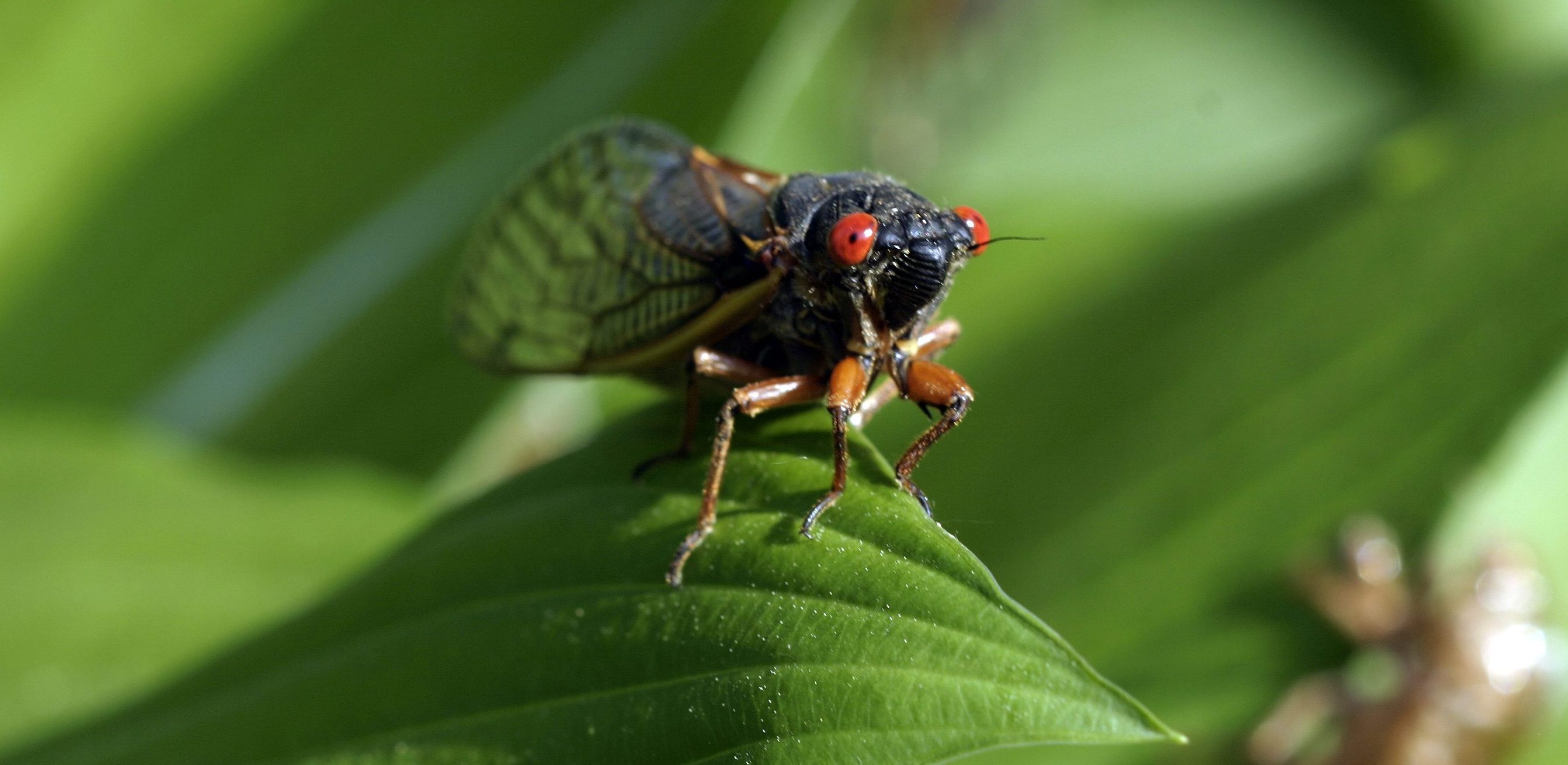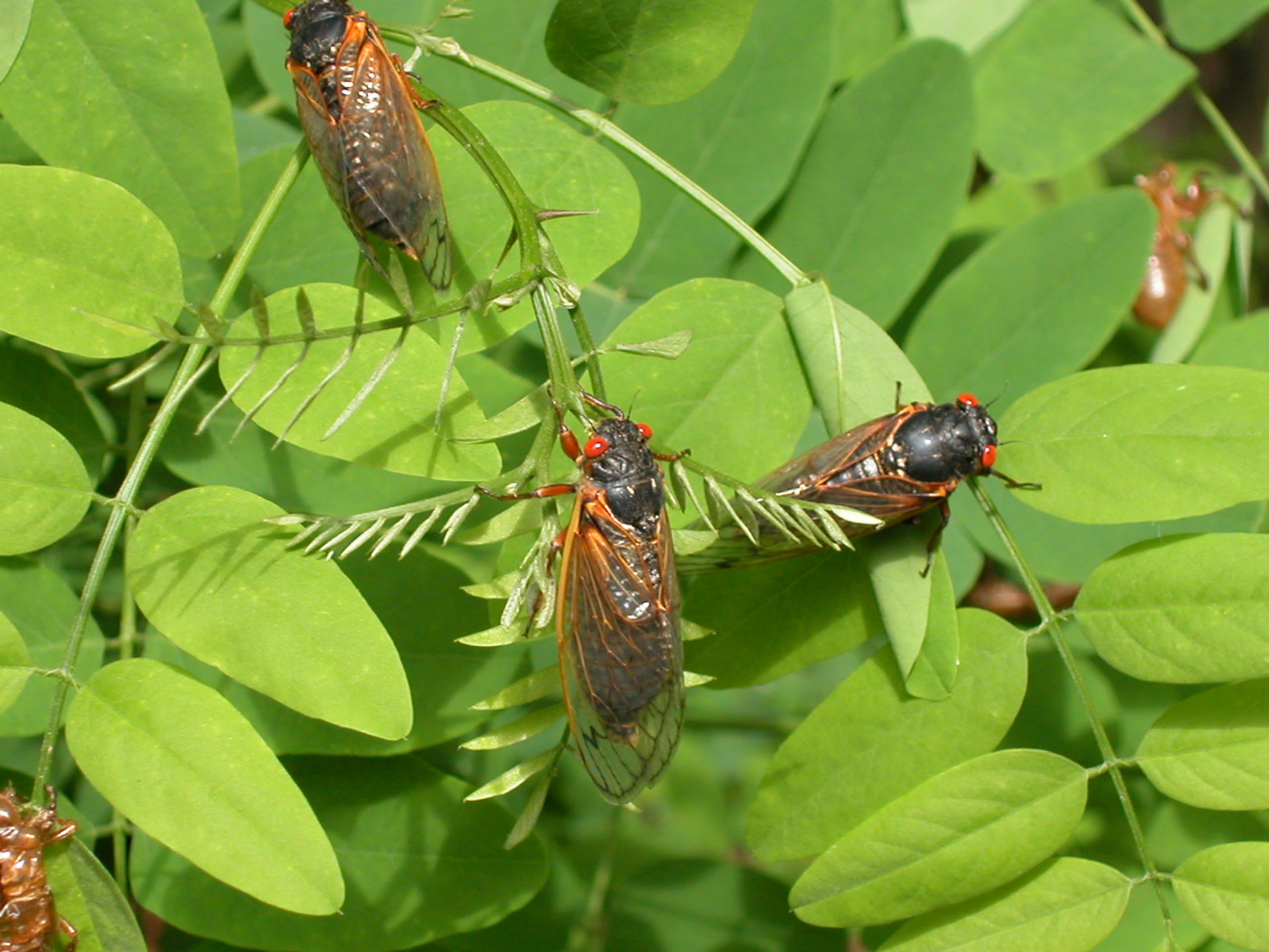Cicadas have made their big comeback in New Jersey. Brian Thompson reports.
It was just a matter of time: We all knew they were coming, and now they're here.
Cicadas that are part of Brood X are emerging and starting to swarm parts of New Jersey, after living underground since George W. Bush's first term as president. The unmistakable hum can already be heard in places like Princeton, as the insects come out from underground for the first time in 17 years to find their mate.
The fearless climbers will attempt to scale just about anything: trees, fences, house walls, and yes, even people — sometimes making their way up faster than we can brush them off.
Rutgers entomologist George Hamilton said there is nothing to fear if you find cicadas trying to climb up your body, as they don't bite and are completely harmless. Hamilton said they are simply "trying to get to a point once they are ready to fly away, they are up off the ground."
Get Tri-state area news delivered to your inbox. Sign up for NBC New York's News Headlines newsletter.
So why do they stay in the ground for so long, feasting on tree roots? One leading theory is that it's a way to foil predators.
"It's hard for any kind of predator or parasite to hone in on it every 17 years, they would have to have a 17-year life cycle as well," Hamilton said.
In fact, the biggest threat to the bugs is habitat loss through development.
"It's one of the reasons we don't have all the broods we used to have, and as we cut down all the trees, we take away basically their food supply," said Hamilton.
A smaller threat is fungus, which can be seen eating away at the abdomen of some cicadas. Hamilton said that has been the case for years. The fungus can cause them to lose their reproductive organ, becoming so-called "zombie cicadas," but some of the natural traits and instincts will survive, like mating.
"In effect, the fungus wants him to mate more than he normally would," even though he won't be able to, said Hamilton.
When cicadas are here, they're here en masse, squeezing out of their exoskeletons as they get ready to fly, leaving the ground littered with the shells that dogs, pets and other creatures (including humans) can eat. When asked if he had consumed a cicada before, Hamilton said he had, and didn't have too bad of a review of it.
"No, they don't taste like chicken, but they don't taste bad," he said. He did caution they need to be boiled before cooking, however.
The return of the bugs is a wonder of nature of sorts, one that has brought the Lee family of Lawrenceville back to the same spot for the third time in 34 years. Luping Lee was 43 years old when she saw them in 1987 — now they're back and so is she.
"Now when I'm 77, they're definitely coming back, so I had to see it," she said. "I don't know if I'll be around (next time), so I definitely came back this time."
The first time the Lee family encountered this brood of cicadas, the family stopped their car thinking the noise they were hearing was coming from the engine. That noise happens only during the day, and will last for the next two or three weeks. While it can be irritating to some, others find ways to enjoy the sound that's made by the males in order to attract a mate.
"Lot of people think they are (a nuisance), but quite honestly to an entomologist, they are one of the most miraculous things we'll see in our lifetime," Hamilton said.
Once a mate is found, the female will lay her eggs in tree branches, and then it's all over for this generation.
"The females will start laying eggs; once they're done laying eggs, it'll be over and we won't see this again for another 17 years," said Hamilton.
The males and females die off, and then the next group will come out in another 17 years — in 2038.



